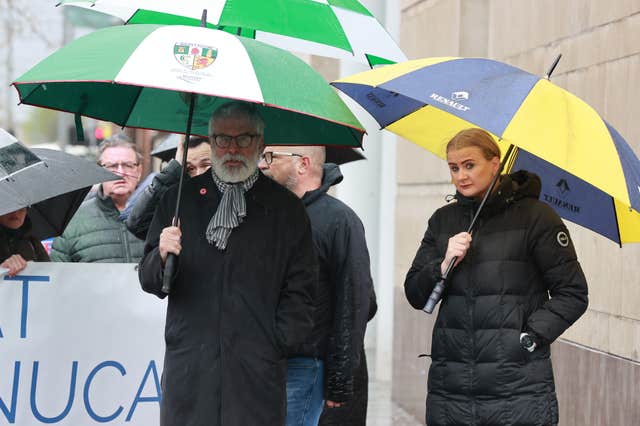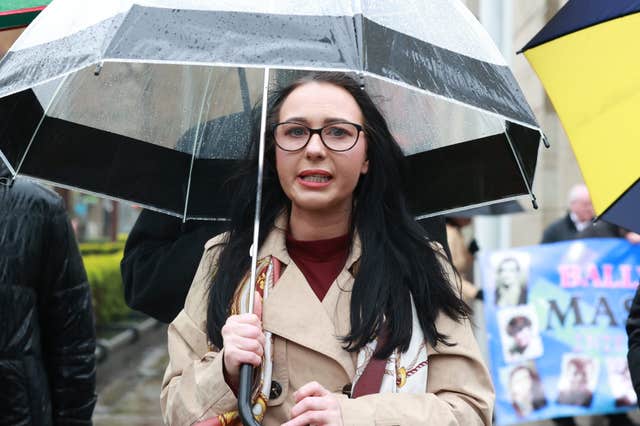Final hearings take place in legacy inquests ahead of legislative cut-off
Coroner probes into Troubles killings are being ended under the Government’s controversial Legacy Act.

Final hearings have been taking place in a series of legacy inquests in Northern Ireland as part of an intensive court schedule ahead of Wednesday’s legislative guillotine.
Coroner investigations into Troubles-related deaths must cease on May 1 under the terms of the Government’s contentious Legacy Act.
Cases that are awaiting the delivery of findings, after all the evidence has been heard, can be brought to conclusion after the deadline.
On Monday, final submissions were heard in the inquests for five people killed in shootings involving the British Army in the Springhill/Westrock area of west Belfast in 1972. The hearing will continue on Tuesday.
The inquest for Seamus Dillon, a doorman shot dead outside a nightclub in Dungannon in 1997, was wound up with the coroner expressing disappointment at the failure to finish the case before the deadline.

Ahead of the deadline, several inquests have already been halted due to the extent of sensitive evidence that has been withheld from the cases.
The coroners in some of those instances have urged the Government to initiate public inquiries, so the material redacted as part of the Public Interest Immunity (PII) process can be properly examined.
In some cases, the Government has initiated legal action to prevent coroners providing summaries – or gists – of the matters subject to PII applications by the security forces.
Former republican prisoner Mr Dillon was gunned down by the Loyalist Volunteer Force (LVF) outside the Glengannon Hotel in Dungannon in 1997.
The shooting was seen as a revenge attack following the murder of LVF leader Billy Wright in the Maze prison hours earlier.
In the final inquest hearing in the case, coroner Richard Greene said the inquest could not conclude due to a failure to complete the PII deliberation process.
A solicitor for the Dillon family accused the state parties of using the PII process to “run the clock down” ahead of the deadline – a claim denied by counsel for the state.
Mr Greene expressed regret that the inquest had not completed and stressed there remained a need for a human rights compliant probe into the death.

“The death of Mr Dillon was a brutal and wholly unnecessary murder of a wholly innocent man who was going about his lawful work when he was shot by terrorists.”
Mr Dillon’s widow Martina, who was involved in a recent legal challenge that found aspects of the Legacy Act unlawful, said her fight for truth would continue.
Outside court, she said: “I feel a bit deflated but I intend to fight on. I’ll fight until I get the answers, until I get the truth and justice that my husband is entitled to.”
On Monday morning, families of those killed in the Springhill shootings walked together into court.
Former Sinn Fein president Gerry Adams accompanied them.
Natasha Butler, whose grandfather Paddy Butler was among those killed, said the Legacy Act was denying many families “truth, justice and accountability”.
“We pray for all the families who are getting…truth and justice ripped away,” she said.
Ms Butler added: “Truth and justice will not be denied to the Springhill/Westrock massacre families.”





